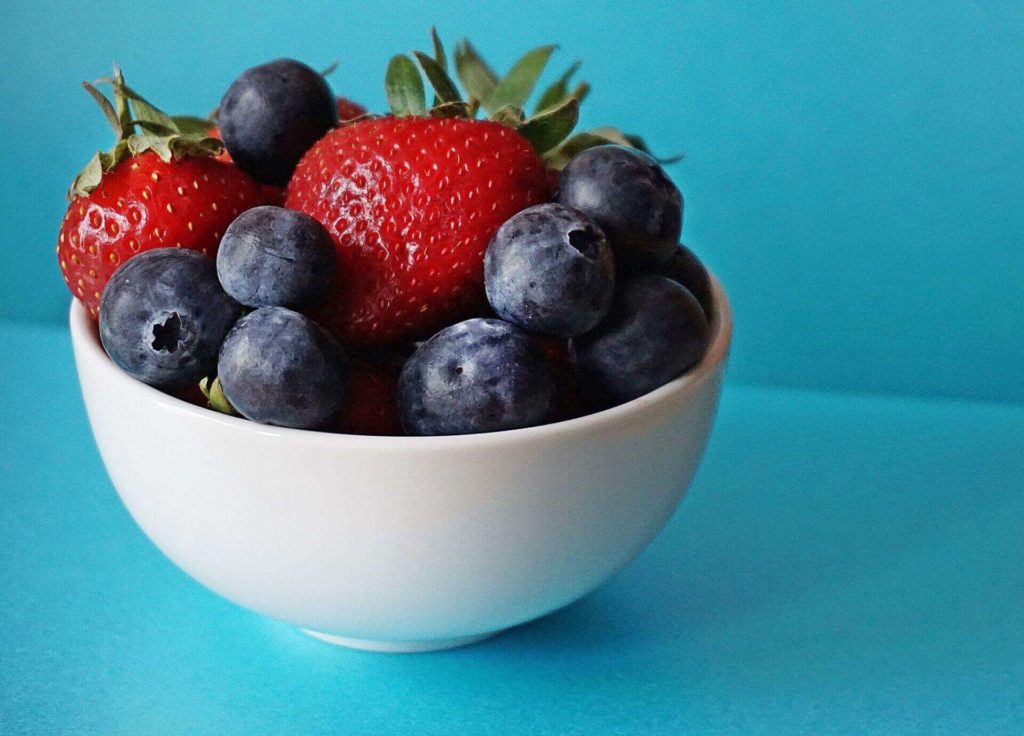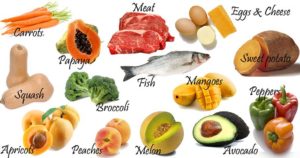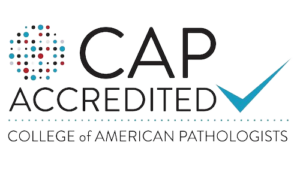Reports
Health
Wellness
Well, you’ve heard it umpteen times that you are what you eat. You are probably gearing up already to redesign your food chart to throw in a few healthy choices based on nutritionists' recommendations.
In that case, you must be familiar with the term “antioxidants” – the magical word in the lexicon of health and nutrition that has become a synonym of power-houses of nutrients.
After all, who wouldn’t want to look perennially young, be energetic, and free of ailments! Though such a proposition may sound a fantastic probability, you can turn it into a possibility by opting for a sensible diet plan that includes foods rich in antioxidants.

Antioxidants are naturally occurring chemicals in foods that help to counter the detrimental effects of oxygen free radicals, which form during normal metabolism.
External factors like pollution, ultra-violet radiation, and X-rays also produce free radicals that affect our system. Free radicals are deprived of oxygen and are responsible for the development of serious ailments, including cancer and heart disease.
Antioxidants convert the free radicals into harmless waste products that are eliminated from the body before any damage is done to the body. Thus, antioxidants act as scavengers that rid our body of free radicals that cause serious metabolic disorders by damaging the tissues and cells.
Plants are one of the primary sources of antioxidants.
Fruits, vegetables, nuts, legumes, cereals, and seeds are foods that are naturally rich in antioxidants.
The best way to ensure adequate intake of the antioxidants is to consume a variety of fruits and vegetables through a diet consisting of 5 to 8 servings of fruits and vegetables per day.
Fruits and vegetables can help guard against heart disease, cancers, and the effects of radiation, pollution, and aging.
Pomegranate, grape, orange, pineapple, plum, apple, and guava are some of the fruits that have the highest concentration of antioxidants.
In addition to being deliciously sweet, berries such as raspberries, blueberries, and strawberries are rich in antioxidants.
These berries are rich in proanthocyanidins - the antioxidants that can help prevent cancer and heart disease as well.
Broccoli, cabbage, carrots, spinach, lemon, ginger, peppers, parsley, kale, red beets, and tomato are vegetables rich in antioxidants.
Broccoli, a cruciferous vegetable, is one of the best antioxidants. It contains more vitamin C than an orange and has more calcium than a glass of milk.
In addition to minerals and vitamins, broccoli is filled with disease-fighting chemicals called phytonutrients.
Sulforaphane, a phytonutrient found in broccoli, has been shown to lower the risk of many types of cancers.
Tomato is the richest source of a powerful anticancer agent called lycopene.
Broad beans, pinto beans, soybeans are some of the best antioxidant foods.
Barley, millet, oats, corn are cereals rich in antioxidants.
Pecans, walnuts, hazelnuts, groundnut or peanut and, sunflower seeds contain a good amount of antioxidants.
Garlic, ginger, cloves, cinnamon, and oregano are antioxidant spices.
It also has been used as a natural antibiotic to kill off some strains of harmful bacteria.
Garlic is also useful for decreasing blood pressure and cholesterol, removing heavy metals from the body, preventing cancer, and acting as an antifungal and antiviral agent.
One clove of garlic contains vitamins A, B, and C, selenium, iodine, potassium, iron, calcium, zinc, and magnesium.
Green tea contains high concentrations of catechin polyphenols. It is also a powerful antioxidant and is very effective against cancer, heart disease, and high cholesterol.
Vitamin A includes carotenoids and retinol.
They are essential for healthy eyes and prevent macular degeneration or age-related blindness.
The antioxidant in vitamin A neutralizes free radicals and boosts your immunity.
Beta-carotene, which is sometimes called provitamin A, can be found in fruits and vegetables such as tomatoes, broccoli, guavas, carrots, pumpkins, apricots, and all green leafy vegetables.
All B vitamins are essential to a woman’s health.
They are essential for brain functioning, red blood cell formation, and DNA building. The important B vitamins are:
Vitamin C, also called ascorbic acid, serves as an antioxidant that facilitates wound healing.
It helps in the formation of collagen, which is essential for the wounds to heal.
It also helps in the production of new red blood cells, which deliver oxygen to your brain and to the other cells of your body.
Vitamin C is present in citrus fruits, grapefruits, strawberries, tomatoes, kiwi, oranges, and broccoli.
Also called cholecalciferol, this vitamin functions as a hormone and regulates bone homeostasis, together with calcium.
It is an important vitamin for women as it maintains strong and healthy bones.
A deficiency of this vitamin can cause you to have osteoporosis.
Exposure to sunlight helps your body produce vitamin D.
The dietary sources of vitamin D are eggs, fish, and vitamin-fortified products like milk.
Vitamin E or tocopherol acts as an antioxidant that aids in the production of red blood cells and the maintenance of the integrity of cellular membranes.
It also helps to slow age-related changes in the body.
Sources of this vitamin include nuts and nut products, wheat germ, cod liver oil, corn oil, and safflower oil.
In reality, eating healthy is never a cumbersome task. It all starts with a simple step of ringing in variety to your table.
Upload your DNA raw data to Xcode Life to get insights into 700+ health-related traits!
PON1 gene in humans is located on the long arm of chromosome 7.
This gene was the first discovered gene of the paraoxonase multigene family along with the PON2 and PON3 genes.
The PON1 gene codes for the enzyme serum paraoxonase/arylesterase 1 or PON1 that has esterase and paraoxonase activity.
The PON1 enzyme is composed of 354 amino acids and is synthesized by the liver.
PON1 associates itself with High-Density Lipoprotein (HDL) in the circulation.
The PON1 gene shows many polymorphisms in the coding and promoting regions.
Polymorphisms in the PON1 gene have an association with coronary artery disease and diabetic retinopathy.
PON1 plays a major role in oxidative stress and inflammatory response by virtue of its association with HDL cholesterol in the body.
HDL facilitates the secretion of the PON1 enzyme, which in turn prevents the oxidation of HDL and stimulates cholesterol efflux from the cells.
These together offer an atheroprotective function to HDL.
As the name goes, these substances and compounds inhibit oxidation in the body.
Antioxidants are natural compounds that help neutralize free radicals in our bodies.
Free radicals are substances whose elevated levels can be harmful to the body.
The elevated levels have an association with diseases like cancer, heart disease, diabetes, and aging.
Our body cells constantly produce free radicals as a reaction to internal body and environmental pressures and stresses.
The cells in our body are responsible for the production of these free radicals.
These are unstable molecules, and thus can cause slow cell damage.
Since these free radicals are reactive oxygen species, the antioxidants naturally counter them.
Antioxidants are neutralizers of these free radicals and can be obtained by consuming foods that are rich in them.
In individuals who are healthy and disease-free, there is a balance of antioxidants that counter the effects of the reactive free radicals.
SNP rs854560 is a polymorphism that is present on the PON1 gene associated with antioxidant needs.
The variants of this SNP affect levels of the PON1 enzyme and have an association with coronary diseases and diabetes. The T allele is the more favorable form of the SNP and codes for methionine, which leads too elevated levels of paraoxonase.
This is beneficial to the body.
However, the A allele codes for leucine; this leads to reduced paraoxonase activity, which is harmful to the body.
[table “130” not found /]SNP rs662, also called as Q192R is a polymorphism of the PON1 gene.
The C allele codes for arginine, whereas the less common T allele codes for glutamine.
The presence of the TT allele can imply lower or decreased levels of PON1 enzyme activity. Higher the PON1 enzyme activity, the lower is the risk for heart disease.
The TT allele also increases the risk of coronary heart disease by 2.3x and also increased the risk of vascular dementia, kidney disease, ischaemic heart disease, and male infertility.
Upload your DNA raw data to Xcode Life to get insights into 700+ health-related traits!
According to American Heart Association (2015), cardiovascular disease is the leading global cause of death, accounting for 17.3 million deaths per year, a number that is expected to grow to more than 23.6 million by 2030.
Low dietary intake of beta carotene is associated with chronic disease such as cardiovascular disease and vitamin A deficiency. It is well known that a greater intake of fruit and vegetables can help prevent heart diseases and mortality. Antioxidant compounds found in fruit and vegetables, especially dietary carotenoids such as beta carotenes, lycopene, lutein may influence the risk of CVD by preventing the oxidation of cholesterol in arteries.
Vitamin A in the diet can come from animal or plant sources. Vitamin A exist in the form of retinol or retinoic acid, the active form in animal sources, and in the form of carotenes in plant sources. Retinol, an active form of vitamin A cannot be made by our bodies and should be obtained from the food we eat. Carotenes must be converted into retinol for them to function as vitamin A in the body. BCMO1 is the enzyme responsible for this conversion. Individuals, especially vegetarians, who get their vitamin A primarily from plant- based foods rely on this conversion to meet their vitamin A needs.

Liver and fish oils are one of the richest source of retinol and other good sources includes eggs, especially egg yolks. Carotenes are found in green leafy vegetables, broccoli, sweet potatoes, orange and yellow vegetables and in vegetable oils.
BCMO1 gene produces BCMO1 enzyme. Individuals with certain genotypes have reduced ability to convert carotenes to retinol, due to reduced BCMO1 activity. Individuals who carry certain versions of this gene may have up to 60% less enzyme activity than others and such individuals may be at risk for vitamin A deficiency. It is recommended that these individuals consume more animal sourced vitamin A, such as fish, eggs, meat and milk products to get their active form of vitamin A, retinol to meet their requirements.
Watch out for these symptoms like oily skin, acne, dry eyes, poor night vision, immune system impairment that indicates insufficiency of retinol in your body. You can also check your vitamin A levels via a blood test.
Type of BCMO1 gene has been shown to influence the vitamin A levels in blood. Want to know what type of BCMO1 gene you have? Try Xcode’s nutrigenetics test which can tell you what versions of the BCMO1 gene are in your DNA. You can also learn about how your genes may influence other traits, including your risk for certain diseases. Write to us at info@xcode.in to find out more.
